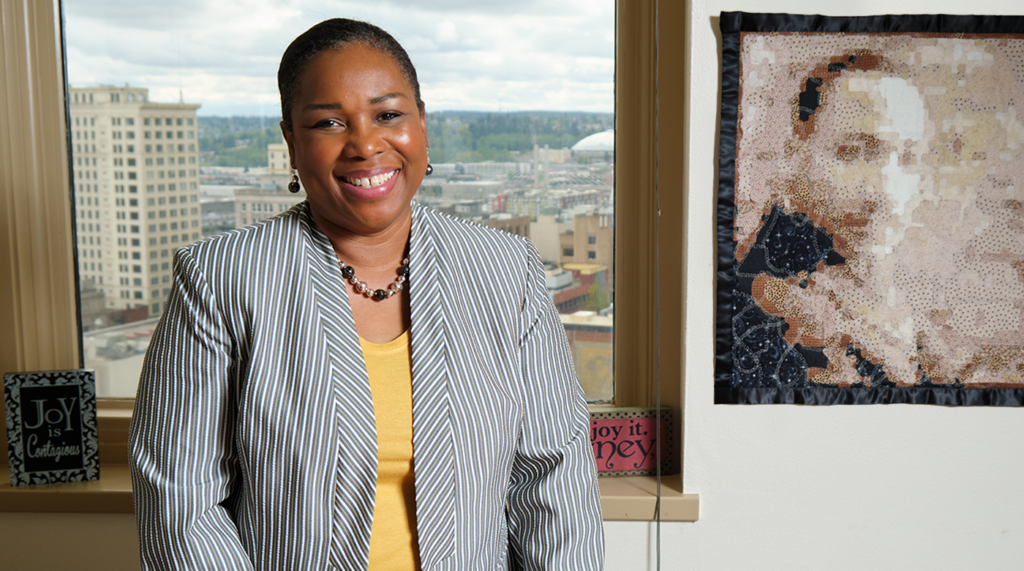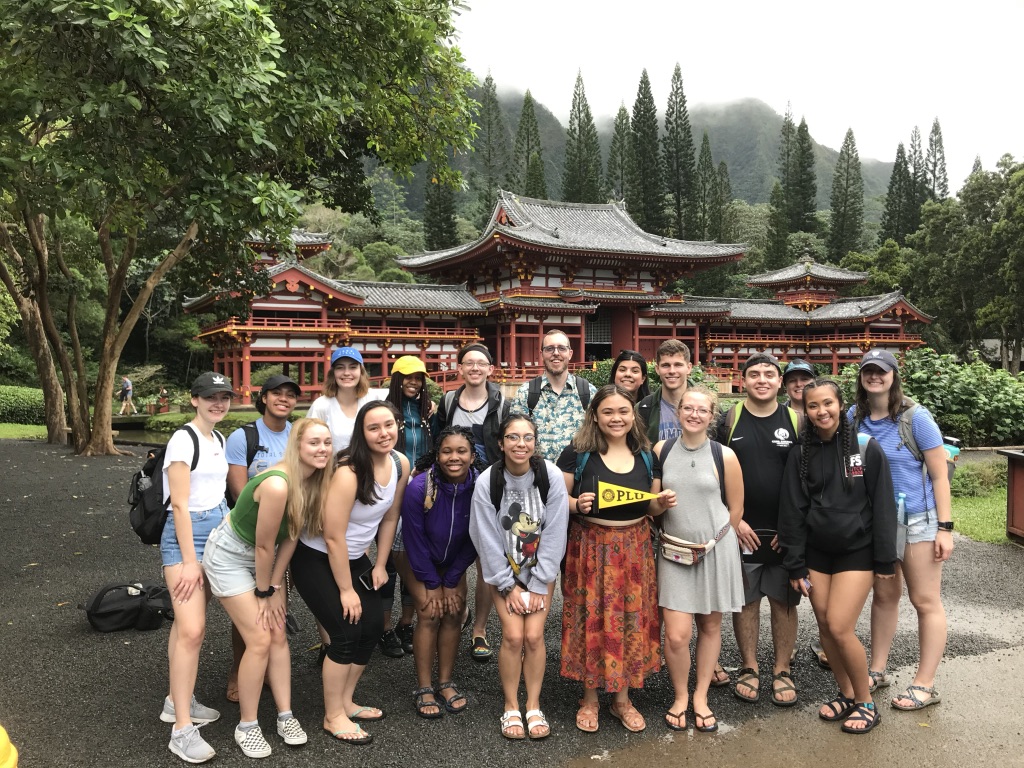Page 481 • (5,289 results in 0.029 seconds)
-
poverty, hunger and environmental degradation, he stressed. It is among the women in Africa that Lewis said he’s found his heroes. When the mothers infected with AIDS die, it’s been the grandmothers who have stepped up to raise the orphans and have formed a new family, he said. Currently, there are 14 to 15 million AIDS orphans in Africa, a number that will grow to 18 million in three years. “These women have become the heroes of the continent,” he said. But, he added, they need our help. Read
-

working for Tacoma CreatesCity of Tacoma environmental scientist Tom Chontofalsky ‘03 loves asking questions Read Previous Clarissa Gines ’12 combines her passions for art and community working for Tacoma Creates Read Next PLU awarded $15,000 from NSF for COVID-19 DEI Challenge COMMENTS*Note: All comments are moderated If the comments don't appear for you, you might have ad blocker enabled or are currently browsing in a "private" window. LATEST POSTS A family with a “Bjug” legacy of giving and service
-

Unlocking the Magic of Colloidal Nanocrystals Associate Professor Andrea Munro and students Aidan Hopson ’24 and Rebecca Smith ’24 spend the summer studying colloidal ZnSe nanocrystals. Posted by: Marcom Web Team / August 11, 2023 Image: Double major in chemistry and environmental studies, Rebecca Smith ’24, chemistry major Aidan Hopson ’24, and associate professor of chemistry Andrea Munro examine how liquids and tiny particles affect nanocrystal growth, mastering the art of precise material
-
: Chris Knutzen Hall, Anderson University Center THE 2024 PAUL INGRAM LECTURE IN RELIGION 3:40 – 5:10 p.m. | Wild Kinship: Disability Wisdom, Interdependence, and the Elemental World Speaker: Julia Watts Belser, Professor of Jewish Studies and Disability Studies Core Faculty, Georgetown University Introduction: Kevin O’Brien, Professor of Christian and Environmental Ethics, PLU Location: Regency Room, Anderson University Center 5:30 - 6:45 p.m. | Dinner Break 7:00 - 8:30 p.m. | How to Do Nothing
-

of Captain Cook and western colonizers, the once prevalent cultivation of kalo dwindled dangerously while Native Hawaiʻians were killed by Western diseases and their land was stolen and repurposed. Sharing Passion through ScholarshipEnvironmental Ethics at Holden Village Read Previous Revisiting the Visiting Writer Series: the 15th Anniversary Edition Read Next Environmental Ethics at Holden Village LATEST POSTS Gaps and Gifts May 26, 2022 Academic Animals: Making Nonhuman Creatures Matter in
-
StationLakewood Station – 40 min Catch a train to Seattle at the Lakewood Station!8. Rainbow CenterRainbow Center – 47 minutes The Rainbow Center is a safe space and resource for members of the LGBTQIA2S+ community. Take the bus and visit the center!9. Tacoma MallTacoma Mall – 48 minutes If you are looking to go shopping, head to the Tacoma Mall!10. T-Town CafeT-Town Cafe – 50 minutes Stop by T-Town Cafe to get a taste of trendy Korean inspired food and desserts!Frequently Asked QuestionsWho do I contact if I
-
Conference for Holocaust EducationThe Seventh Annual Powell-Heller Conference for Holocaust Education: The conference highlighted the newly-approved Holocaust/Genocide Minor at PLU, Washington State Holocaust Education Resource Center teacher training and talks by Holocaust survivors. The theme for this conference was “Survivors and Rescuers.” Scholars Dr. Susannah Heschel, Dr. Hartmut Lehmann and Dr. Christopher Browning presented their latest work in this year’s theme, “Survivors & Rescuers.” Survivors
-
Annual Powell-Heller Conference for Holocaust Education: The conference highlighted the newly-approved Holocaust/Genocide Minor at PLU, Washington State Holocaust Education Resource Center teacher training and talks by Holocaust survivors. The theme for this conference was “Survivors and Rescuers.” Scholars Dr. Susannah Heschel, Dr. Hartmut Lehmann and Dr. Christopher Browning presented their latest work in this year’s theme, “Survivors & Rescuers.” Survivors included the story of the Brill family
-
animals will be gone before their habitat is destroyed due to illegal and excessive hunting. Part of the problem is the human view of these nonhuman animals. Instead of being seen as beings valuable in their own right, they are seen as a resource for human needs and desires. Further evidence of this is found in the use of these same creatures, in captivity, for biomedical research and entertainment. As philosophers, we are examining the current crises faced by captive and free living apes. We are
-
committee. Work with your writing center on campus. These individuals have invaluable expertise in writing essays and can be a great resource anytime you need to prepare an essay. Follow-On Service ProjectRecipients of a Gilman Scholarship will need to complete a Follow-On service project. Below you’ll find an example from a PLU student.
Do you have any feedback for us? If so, feel free to use our Feedback Form.


